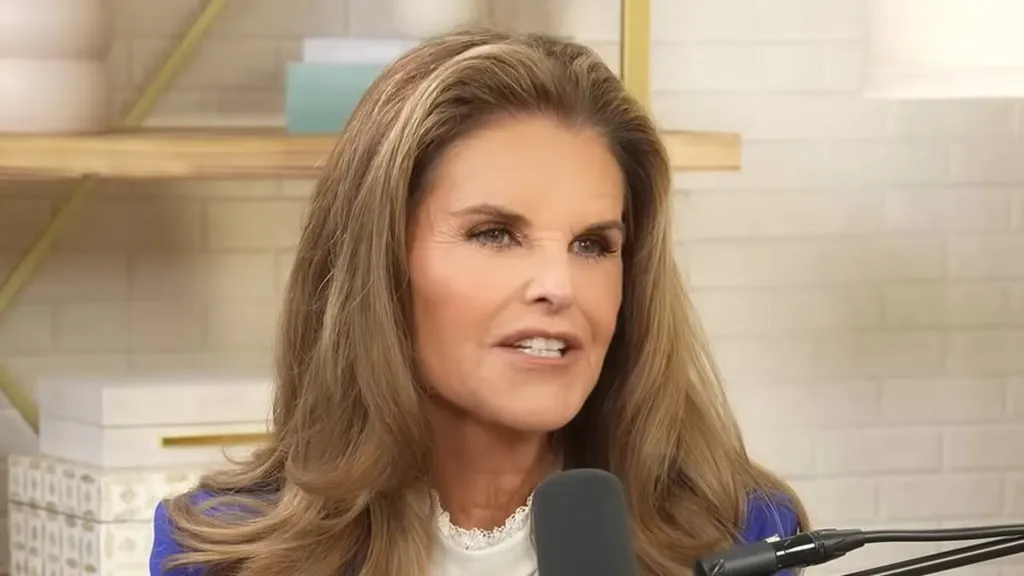Maria Shriver has reflected on the impact of her shock firing after her entire show was axed.
She was anchoring CBS Morning News - pouring in early-morning energy, and, as she candidly admits, more emotion than she should have been giving to a job.
On the latest episode of The Jamie Kern Lima Show, Shriver explained that she had convinced herself the program was her 'family,' a word she now laughs at because the feeling was seemingly not mutual.
When CBS pulled the plug, she felt blindsided and instantly untethered.
'It helped me realize, oh wait a minute, this is not my family.
'This place can throw me out in a second,' she told host Jamie Kern Lima.
That sting, she says, was the moment her real education began.
Shriver had grown up in a mission-driven Kennedy household where love sounded like 'good job - now what's next?' and nobody paused to discuss feelings.
Shriver was a coanchor on CBS Morning News for three years.
In fact, she admitted that growing up, she and her family never said 'I love you' to each other.
So, as an adult, she translated approval into achievement and naturally treated the newsroom like Thanksgiving dinner.
Losing the job forced her to redraw the boundary between who she is and what she does for a living.
'Had I not been fired, I probably wouldn't have had that wake-up call,' she admitted.
In practical terms, the lesson was simple: a boss can like your work, but a job can't love you back.
Emotionally, it was bigger.
She realized she had to build the family atmosphere she craved at home, not at the anchor desk.
That's why her four grown kids now hear 'I love you' on repeat - a conscious reversal of the stoic upbringing she once knew.
Shriver spoke to Jamie Kern Lima about how getting fired from CBS helped her focus on her real family, rather than trying to form those bonds with coworkers.
They tease her for being strict and beg her to slow down, but they never question her affection.
Looking back, she's grateful the cancellation came early, before her identity totally revolved around a corporate brand.
It taught her to keep work in perspective, to measure self-worth in something sturdier than ratings.
It also set the stage for future pivots - from NBC correspondent to California's First Lady to Alzheimer's advocate - none of which, she notes, define her entire being.
Today, she coaches younger journalists to invest passion in their craft but loyalty in the people who'll still be there after the credits roll.
'So I need to think about my family, my real family,' she said.
'I think I need to think about my real life and put this part of my life in perspective.'
